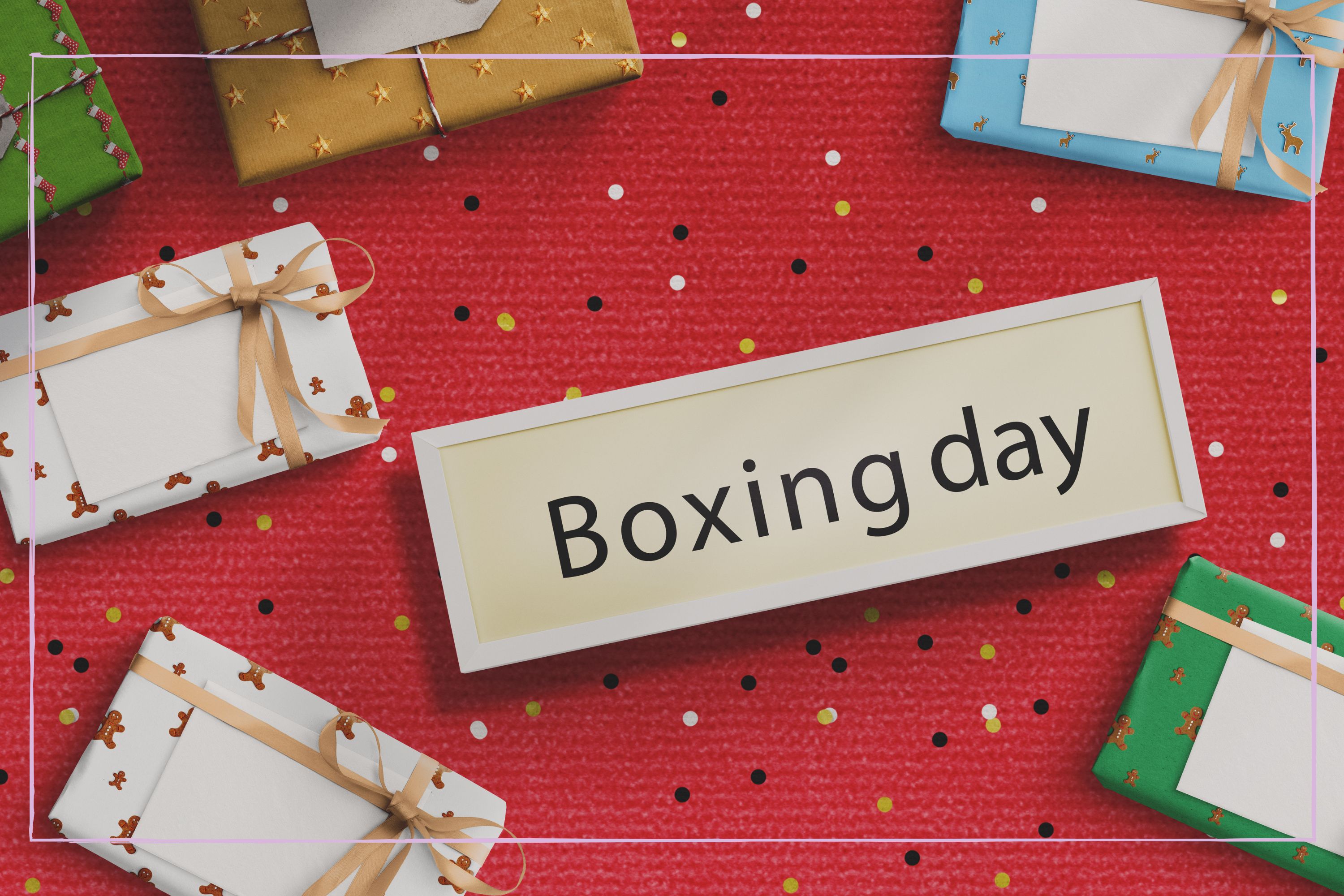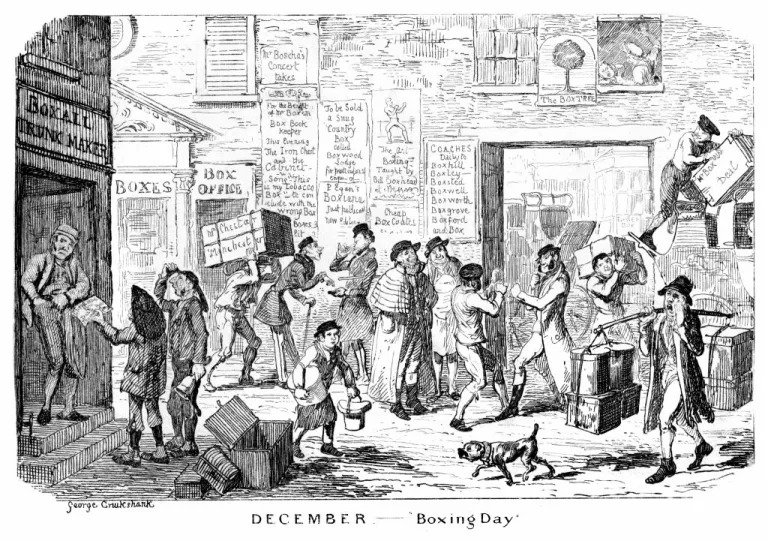Why is it called Boxing Day and what are the origins of the celebration?
Here's the history of the day after Christmas


Ever wondered why the day after Christmas Day is called Boxing Day - and where did the celebration originally came from?
For some, Boxing Day is a time to bag a bargain and shop the sales. For others, it means doing a second Christmas Day with the family you missed seeing the day before. But have you ever wondered where the day comes from? The names for Christmas Day and Christmas Eve (Eve means 'the day or period of time immediately before an event') are pretty self-explanatory. But why is Boxing Day called Boxing Day?
Why is the day after Christmas Day called Boxing Day?
The name Boxing Day comes from a time when the rich used to box up gifts to give to the poor. Traditionally, servants would get the day off and receive a special present from their masters. The servants would also go home on Boxing Day to give Christmas boxes to their families.
Churches also contributed to the creation of Boxing Day. They would collect money from churchgoers in boxes and the donation would be handed out to the poor on the day after Christmas.
The Oxford English Dictionary notes the earliest use of the term 'Boxing Day' as being in Britain in the 1830s. The day is defined as, "The first weekday after Christmas Day, observed as a holiday on which postmen, errand boys, and servants of various kinds expect to receive a Christmas box".
This places the first use of the term in the Victorian era - the Victorians are responsible for many of the Christmas traditions that we know and love today. This includes popularising the decorating of Christmas trees and the sending Christmas cards.
What did Boxing Day used to be called?
Boxing Day used to be known as Saint Stephen's Day, or the Feast of Saint Stephen. The carol 'Good King Wenceslas' tells the story of the king giving to a peasant “on the feast of Stephen”. Saint Wenceslas was a 10th-century Bohemian duke who, according to legend, did noble deeds on December 26.
Parenting advice, hot topics, best buys and family finance tips delivered straight to your inbox.
Where did the tradition of Boxing Day come from?
There are conflicting opinions on where Boxing Day actually came from, though the tradition is thought to have originated in the UK. What most historians can agree on is that the name derives from the act of 'giving boxes' the day after Christmas. The nature of these boxes, who was giving them and who was receiving them, is where theories begin to differ.
One theory is that the tradition of gifting boxes came from Saint Stephen, who is considered Christianity’s first martyr. Known for serving the poor, Saint Stephen is traditionally celebrated with charity and giving on Boxing Day - hence the holiday previously being called Saint Stephen's Day, or the Feast of Saint Stephen.
Alternatively, the tradition of 'Boxing Day' could have begun in the Middle Ages, when money for the poor was collected in offertory boxes (also known as a poor box or alms box) in churches.
However, the use of the name 'Boxing Day' is said to have started in the 1800s.

How is Boxing Day celebrated?
Boxing Day is an official Bank Holiday in the UK and is associated with sports such as football and rugby as well as fox hunting - though the latter is illegal in England, Scotland and Wales.
The holiday is also associated with Boxing Day sales, which see retailers discounting the prices of old stock. Banks, post offices and many other businesses are closed on Boxing Day, though shops, pubs and restaurants are generally open - although opening hours may differ from a normal working day.
In other family news, you might be wondering why more babies are conceived over the holidays, or want to know the best places to hide Christmas presents from kids - and #4 is genius.

Selina is a Senior Family Writer for GoodtoKnow and has more than 16 years years of experience. She specialises in royal family news, including the latest activities of Prince George, Charlotte, Louis, Archie and Lilibet. She also covers the latest government, health and charity advice for families. Selina graduated from the University of Sheffield in 2006 with a degree in Journalism, and gained her NCTJ and NCE qualifications. During her career, she’s also written for Woman, Woman's Own, Woman&Home, and Woman's Weekly as well as Heat magazine, Bang Showbiz - and the Scunthorpe Telegraph. When she's not covering family news, you can find her exploring new countryside walking routes, catching up with friends over good food, or making memories (including award-winning scarecrows!)